Working with partners
Patient safety concerns - escalation process
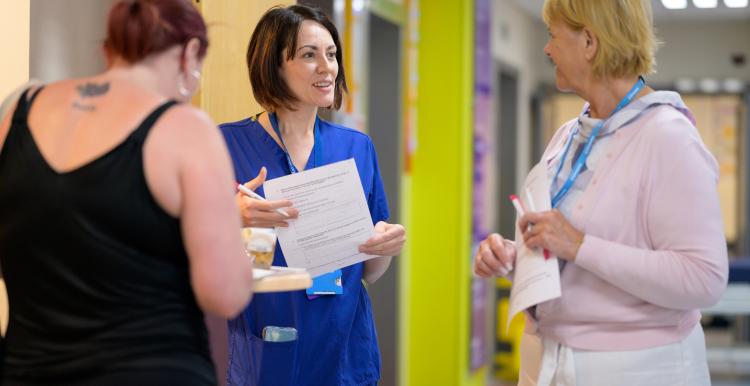
-
Your local Healthwatch identifies concerns about patient safety/the culture/governance of one or more health and/or care organisations that risks patient safety.
-
Your local Healthwatch raises the matter with the organisation(s) in question directly unless there is a valid reason preventing this (such as the concern is about a CEO or senior leader). You should consider your local safeguarding policy and processes if appropriate.
-
If this is unsatisfactory, your local Healthwatch raises the matter with the commissioner of the service and/or your integrated care board
-
If the initial steps have proved unsatisfactory, you may wish to discuss the matter with your regional manager, who can raise the matter, if appropriate with Healthwatch England colleagues for a prompt response.
-
You can then decide to share your concerns with the CQC via enquiries@cqc.org.uk using the template email below where the information will be recorded and triaged appropriately. In order for Healthwatch England to track and record issues escalated to the CQC we ask that you copy your regional manager into these communications.
-
Healthwatch England will liaise with the CQC to gain an overview of the cases raised by local Healthwatch. Subsequently, we will share general findings with the quarterly Healthwatch Patient Safety Network for understanding and learning.
Downloads
Stakeholder Perceptions Survey: Template for local Healthwatch
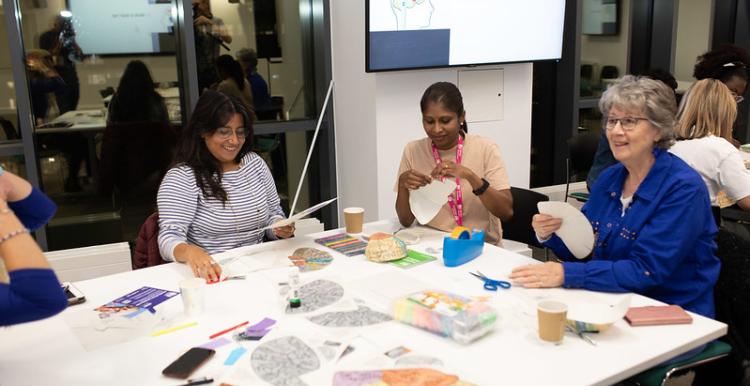
Healthwatch need strong working relationships and influence with key individuals within stakeholder organisations to make a difference for residents.
This stakeholder perceptions survey allows you to evidence your Healthwatch’s strengths and areas for development in stakeholder relations with key health and social care, local authority, and non-profit sector professionals.
The survey template has been shared on SmartSurvey with all local Healthwatch accounts provided through Healthwatch England.
The guidance on using the survey provided here includes a copy of all survey questions and accompanying text so you can create the survey on another platform if necessary.
The conclusions you reach from your survey can form the starting point for you to produce a stakeholder influencing plan. This plan can include a set of priority actions that you will take to ensure you:
- maintain and build on the strengths you’ve identified where stakeholders agreed that statements applied to you;
- address areas where stakeholders didn’t sufficiently often agree that the statement applied to you.
Downloads
Healthwatch Greenwich and Healthwatch Rutland kindly supported this project by piloting the survey with their local stakeholders. Both found the process led to very useful findings.
Our shared values - how we developed them and next steps
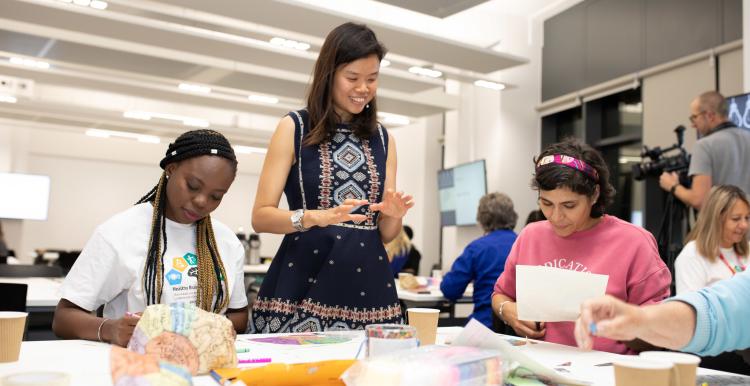
I want to thank each of you for your contribution over the last few months in helping us shape our shared values. It was a moment of pride for me to announce them at our inspiring National Awards event – a celebration that vividly showcased these values.
In case you missed it, I am delighted to announce our five shared values:
- Equity: Embracing inclusivity and compassion, establishing profound connections with the communities we serve, and empowering them.
- Collaboration: Nurturing both internal and external relationships, fostering transparent communication, and partnering to amplify our impact.
- Independence: Championing the public's agenda, serving as purposeful and critical allies to decision-makers.
- Truth: Operating with unyielding integrity and honesty, fearlessly advocating truth to those in power.
- Impact: Pursuing ambitious endeavours to effect meaningful change for individuals and communities while remaining accountable and holding others accountable.
The journey so far
The journey toward defining these values has been collaborative, with input from 37 Healthwatch and discussions among Healthwatch England staff and our National Committee. Given the emerging consensus, choosing the words for each of our values was relatively straightforward. While there may have been differences in the exact wording, we've encapsulated the diverse range of perspectives through the accompanying descriptors for each value.
Take, for instance, the emphasis on inclusion, which resonated deeply with many of us. This sentiment is reflected in the descriptor for equity, reminding us of the importance of equitable access to health and care services for all and our commitment to empowering individuals to shape the services they receive. It also means our commitment to our staff, volunteers, and board members to support a culture where they can fulfil their potential, thrive and contribute meaningfully, regardless of background or circumstance.
During recent discussions on our future sustainability with over 200 local Healthwatch, local authority commissioners, and Integrated Care Board representatives, a consistent message emerged: our strength lies in our deep connection to local communities with a national footprint, which enables us to effect change locally, regionally and nationally. Underlying this strength, and our role as a critical friend holding health and care bodies to account, are the values of equity, collaboration, truth, independence, and impact. These values drive meaningful change and address health inequalities, forming the foundation of our purpose.
Putting our values into action
When we embarked on this journey in September, we committed to ensuring that our values don't become mere words on paper. It's about embodying these values in our everyday work and interactions.
At Healthwatch England, we will:
- Add a personal objective for each staff member to reflect on and demonstrate how they apply our values, including as part of staff appraisals.
- Factor in our values when reviewing our policies, procedures and intranet.
- Focus on exploring the behaviours associated with each of the values at our staff away day in May.
- Develop a charter for our National Committee setting out expected behaviours and standards of conduct.
These are just some of the actions we’ll be taking to foster a culture where our shared values guide our actions and decisions, and we invite you to consider similar actions.
We hope that you will:
- Share these values with your staff, board members, volunteers, and commissioners.
- Discuss internally how you can adopt these values for your Healthwatch or align them to your existing values. We are confident there will be clear alignment from feedback in the workshops.
- Take part in discussions about the behaviours that we can all sign up to that will underpin these values. Watch out for opportunities on Workplace and in the newsletter.
- Share examples of when your staff and volunteers exemplified these values in the annual Healthwatch survey in September.
Moving forward
Although each Healthwatch is independent, with some being part of larger organisations with your own set of values, it's crucial that we can all align with a common set of values. This cohesion resonates with our funders and stakeholders, emphasising our commitment to the communities we serve. Furthermore, it demonstrates our unity as we advocate for our future sustainability.
I'm already looking forward to our National Conference 2024, where we'll have the opportunity to reflect on these shared values.
Together, let's harness the power of our shared values to drive meaningful impact and enhance our effectiveness in serving the public.
Securing the future sustainability of Healthwatch
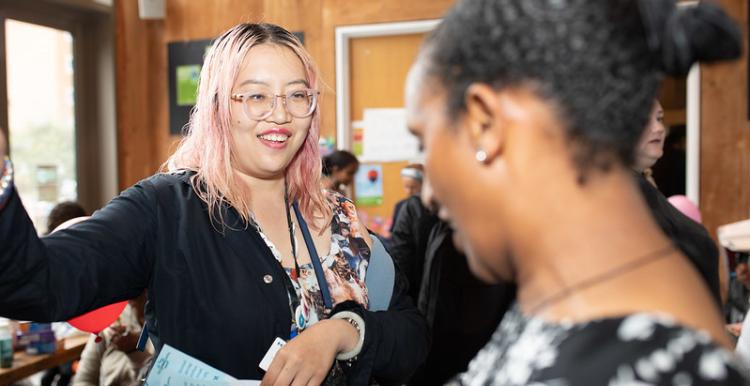
As you will be aware, ensuring the sustainability of the Healthwatch network is a top priority for Healthwatch England. We know that the current model is at breaking point, with considerable variation across the network and a collective real-terms budget at less than half of what it was in 2013/14.
We have also seen some instances where local authorities cannot award a contract due to no viable provider being willing to deliver the Healthwatch for the available funds. Of course, many Healthwatch do excellent work despite their limited resources, but they often operate with considerable uncertainty regarding their future and face challenges recruiting and retaining staff.
I want to express my thanks for the invaluable contribution made by Healthwatch in shaping our thinking on the future of Healthwatch. Over the past several months, we have engaged with over 100 Healthwatch and the same number of local authorities. We also received insightful feedback and proposals from an independent agency, Kaleidoscope, following comprehensive interviews with representatives from Healthwatch, local authorities, and integrated care boards.
Kaleidoscope's findings, recommendations and next steps
What stands out from our findings is the collective recognition of both the opportunities and challenges within the network, accompanied by a consensus on effective strategies to address them, while also acknowledging diverse perspectives. It's clear that the primary concern revolves around insufficient funding and significant disparities across the network – brought about due to lack of ring fencing.
The primary recommendation proposes that Healthwatch England should lead the commissioning of Healthwatch services. This proposal aims to achieve a fairer distribution of funding, establish longer-term contracts, and improve consistency across the network, all while safeguarding Healthwatch independence and addressing community needs. While we acknowledge that each approach has its strengths and weaknesses, we're at the very early stages of developing a model and keen to explore deeper into these proposals with your input to maximize strengths and mitigate weaknesses.
It's important to remember that these are findings and proposals. Ultimately, implementation of the main recommendation would require primary legislation, which is beyond the control of Healthwatch England. There are numerous steps to be taken along the way, including those that can be enacted without legislative change to enhance our effectiveness – again which we would like to explore further with you.
We are organising a series of further webinars (see below) to gather your feedback on these proposals, which will be instrumental in refining our strategies. During these sessions, we will also outline the next steps forward, including further engagement with you. Once again, I extend my appreciation for your invaluable input and collaboration.
How you can get involved
Following the recent conversations, we are running a series of futher sessions which will involve a short presentation on the findings and proposals, plus an opportunity for you to contribute to shaping the proposals further.
These events are for anyone in a Healthwatch (please note - those on 16 and 28 May are specifically set aside for chairs and board members) as we want to hear everyone’s views on how we can secure the future sustainability of Healthwatch.
Sign up to one of our events:
New report paints a picture of network trends
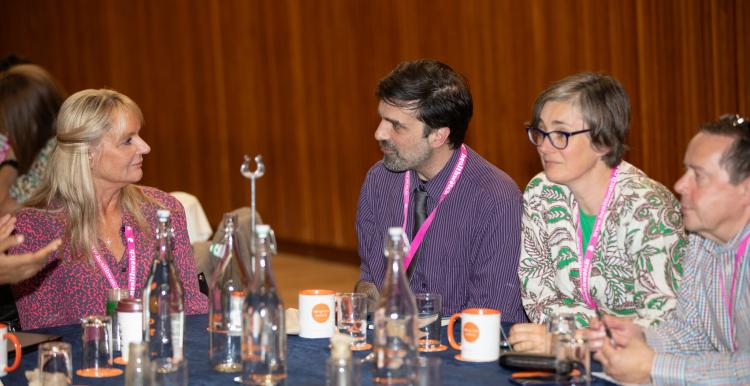
'The Healthwatch Network: A National Picture of Key Trends' highlights that while impact and income generation have increased and many more Healthwatch are sharing data, variation means it's hard to compare activity levels and core funding has experienced a real-terms cut.
In the report, we also consolidate key information we collect from the Healthwatch network to look at key areas including:
- Demonstrating impact
- Relationships with integrated care systems and the Care Quality Commission
- Funding and commissioning
- Colloaboration and current/future priorities
We highlight some of the diverse outcomes Healthwatch across the country have achieved, including making services more accessible, helping to expose safety concerns and improving access to dental appointments.
We also use the report to explain what we are doing, and what more you as the Healthwatch network could be doing, to further help each other and the communities we serve.
Downloads
Working with your local Joint Strategic Needs Assessment
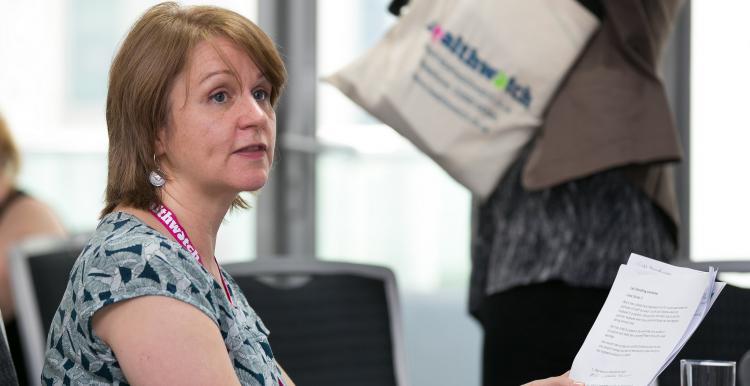
About this resource
The Joint Strategic Needs Assessment (JSNA) is a process by which local authorities and integrated care systems assess the current and future health, care and wellbeing needs of the local community to inform local decision making.
JSNAs make sure that health organisations and local authorities have a good understanding of their local populations, and the challenges services face in tackling health inequalities.
Many local Healthwatch regularly influence their local JSNA to share vital information about what people want from services. This resource aims to provide you with more information about how you can engage effectively with yours. It includes:
- More about what a JSNA is and how they work
- Case studies where Healthwatch across the country have worked effectively with their JSNA
- Opportunities for Healthwatch to get involved in their local JSNA
- How you can use JSNA to prioritise your future work and hold local systems to account on what they're doing
Share for Better Care: our new campaign
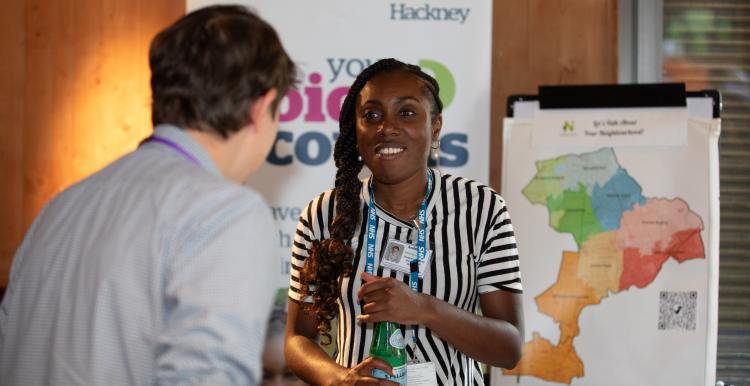
What's in this guidance?
- About the campaign
- How will this be done?
- When will this take place?
- Who are we trying to reach, and when?
- Key messages
- How can you get involved?
- How will Healthwatch England and CQC help my Healthwatch?
- The campaign has been designed so you can use it to
- Assets, templates and resources.
What will we achieve with this new campaign?
Share for Better Care, a joint-campaign with the Care Quality Commission (CQC), focuses on engaging with communities who are underrepresented in our national feedback and encourages them to share their experiences of NHS and adult social care.
This campaign focuses on the insight, from our research and focus groups, that people are more likely to give feedback when they can see it has made an impact.
We want people to know that their feedback, no matter how small, has the power to transform health and social care across the country.
The campaign is focused on collecting experiences of people from minority ethnic backgrounds and people from lower-income groups.
In addition to our priority groups, the CQC are also focusing on feedback from autistic people, people with learning disabilities and disabled people with sensory/physical impairments.
How will this be done?
On a national level, Share for Better Care is designed to be rolled out primarily via social media and PR channels (such as national news stories).
But the campaign is adaptable and you can shape it to take advantage of opportunities in your community (such as linking up with organisations already working with the local community and/or offline activities like distributing flyers, speaking to people at local events/festivals and engaging with your local media).
When will this take place?
The campaign will launch in February. At the moment we’re aiming for a launch on or around February 12, but will keep you posted if this changes.
The campaign will run until April 2025 and will be made up of four distinct phases:
- Phase 1: National launch: Broad brand awareness communicating the primary campaign messages across a range of channels. This will take place from February 2024-April 2024.
- Phase 2: Health inequalities and deprivation: This allows us to focus on communities who are more likely to experience poorer care and inequalities, reaching audiences using a variety of tactics. This will take place from April 2024-August 2024.
- Phase 3: Care the way you need it: This is a combination of broad awareness and targeting specific audiences, using innovative approaches. This will take place from August 2024-December 2024.
- Phase 4: The Staff Perspective: The final phase is taken from the view of health and social care professionals, using innovative approaches, like partnering with media doctors and healthcare influencers, to communicate the campaign messages amongst our target audiences. This will take place from December 2024-March 2025.
Who are we trying to reach and when?
Healthwatch’s campaign actions will focus on gathering feedback five specific ethnic minority groups; people from Black African, Black Caribbean, Indian, Pakistani and Bangladeshi communities.
We will target each of these communities at different stages of the campaign.
More information to follow!
What are the key messages of the campaign?
Call to action: We use feedback to help improve health and care services. Share your feedback for better care.
Primary messages:
- We are Healthwatch. We act on your feedback to help improve care where you live.
- Whether it’s good or bad, big or small, we welcome your feedback. We are here to listen and act on your feedback.
- Together we can improve health and care, but we can only make a difference if we know about your experience.
- The simple act of sharing feedback is already helping to improve care for the people who use it.
How can you get involved?
You can support the campaign in the following ways:
- Sharing our ambassadors' stories. You could also share your own
- Sharing campaign messaging and assets on social media
- Sharing content from Healthwatch England, CQC and other partners' social media channels
- Contributing case study stories
- Supporting the campaign on your website (for example campaign landing page or blogs)
- Use campaign materials to develop your own content and to collect feedback about care for your organisation
How will Healthwatch England and CQC help my Healthwatch?
We are working with PR agency Grayling to put the final touches on some tools and resources to support campaign activities in your community.
These will include visual assets (like social media graphics and posters), templates and written copy (such as social media messages and email templates).
We will share these products closer to the launch date – look out for more from mid-February!
The campaign has been designed so you can use it to:
- Promote feedback as a positive and caring thing that anyone can do
- Encourage people to share views about the local issues your community faces
We also want you to encourage your local partners, NHS and social care services to adopt the campaign, so together we can increase awareness and feedback to help improve services.
